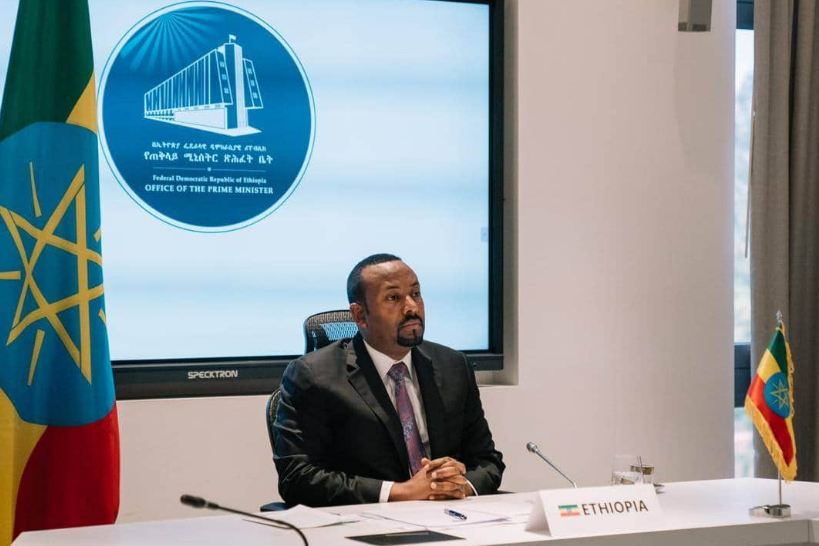
Ethiopia, Egypt, Sudan agree to further negotiations on contentious GERD project

Sudan Prime Minister Abdalla Hamdok announced that an understanding had been reached to continue negotiations that aim to finalize the Grand Renaissance Ethiopian Dam (GERD) filling and operating agreement.
Hamdok’s announcement came after a meeting was called by the African Union. Present at the meeting was Hamdok, Ethiopian Prime Minister Abiy Ahmed, Egyptian President Abdel Fattah al-Sisi, AU Commission chairman Moussa Faki Mahamat and AU chairman President Cyril Ramaphosa.
“Today was a fruitful meeting at the African Mini-Summit on the Renaissance Dam and we ended with an understanding to continue negotiating an agreement to fill and operate the dam,” Hamdok tweeted.
Ahmed on his part expressed delight that Ethiopia, Egypt and Sudan had agreed to “continued technical discussions” on filling the dam.
Ethiopia started building the GERD in 2011, while Egypt, a downstream Nile Basin country that relies on the river for its fresh water, is concerned that the dam might affect its 55.5-billion-cubic-meter annual share of the water resources, a sentiment shared by Sudan.
Egypt and Sudan want an agreement with Ethiopia on how fast the dam is filled to ensure their water supplies.
Last week, Ethiopia denied media reports that it had begun filling the dam causing severe tensions with Egypt prompting Cairo to swiftly ask for clarification.
Ethiopia had previously said it would begin filling the dam’s reservoir even without a deal as the rainy season floods the Blue Nile.
On Tuesday, Ahmed’s office said that recent heavy rains have allowed Ethiopia to achieve its first-year dam-filling target and that the reservoir is overtopping.
“Current rainfall and runoff situation in the region have made it conducive to fill the dam,” it said. “Ethiopia is committed to a balanced and win-win negotiation that ascertains the Abbay River will benefit all the three countries.”
Ethiopia says the dam offers a critical opportunity to pull millions of its nearly 110 million citizens out of poverty and become a major power exporter. Downstream Egypt, which depends on the Nile to supply its farmers and booming population of 100 million with fresh water, maintains that the dam poses an existential threat.
Several negotiations with an array of mediators, including the Trump administration, have so far failed to produce an amicable solution.






